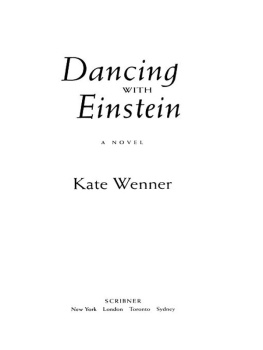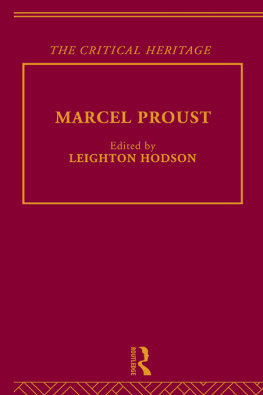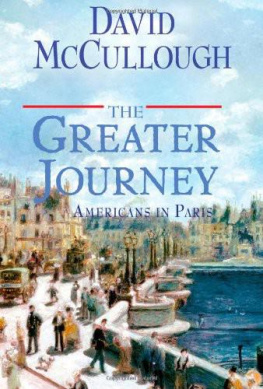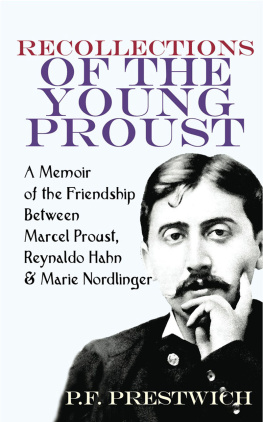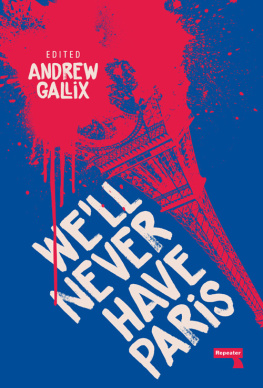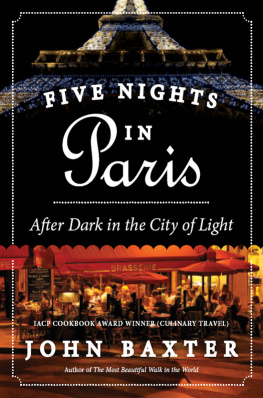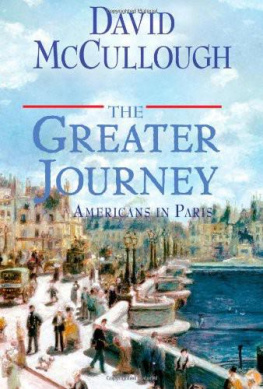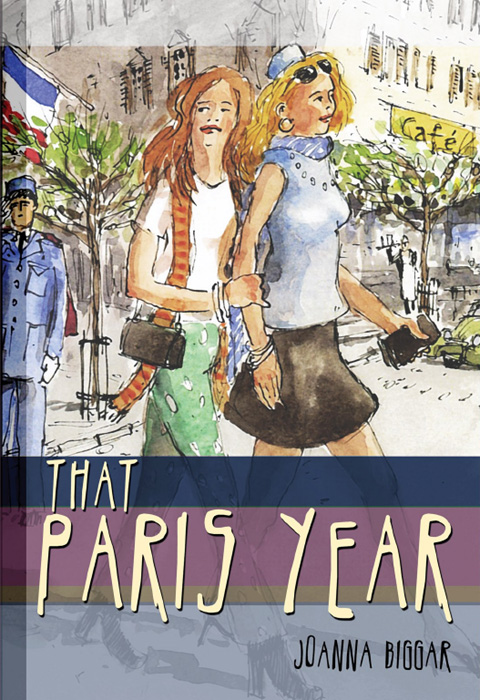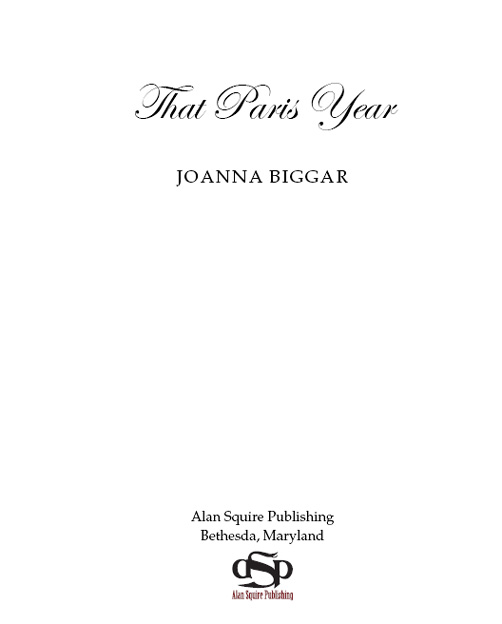That Paris Year is published by Alan Squire Publishing in association with Left Coast Writers and The Santa Fe Writers Project.
2010 Alan Squire Publishing
All rights reserved. Except for brief passages quoted in newspaper, magazine, online, radio, or television reviews, no part of this book may be reproduced in any form or by any means, electronic or mechanical, including photocopying or recording, or by any information storage and retrieval system, without permission in writing from the publisher (www.AlanSquirePublishing.com).
ISBN: 978-0-9826251-0-1
Cover painting by Gregory Robison
Jacket design by Randy Stanard, De Witt Designs,
www.dewittdesigns.com
Back cover photo by Douglas Hale
Copy editing and interior design by Nita Congress
Editorial assistance by Bernadette Geyer
Printed by ProForma Mactec Solutions, Oakland, CA
First Edition
Ordo Vagorum
For Douglas Hale, Jimmy Patterson, and Rose Solari
I will write here. I will live quietly and alone. And each day I will see a little more of Paris, study it, learn it as I would a book. It is worth the effort The streets sing, the stones talk. The houses drip history, glory, romance.
Henry Miller, letter, 1930
We do not say anything special to each other, only that Paris is beautiful. But in that word beautiful are centuries of lives, of wars, of work, of faith, of deaths Paris is beautiful. It aches to say so, ones arms are never big enough to hug such an immensity.
Etel Adnan, Paris, When Its Naked, 1993
Contents
If I desire the water of Europe, it is
Only the black, cold pool in a scented twilight
Where a squatting child full of sorrow sets the sails of
A boat, fragile as a butterfly in May.
Arthur Rimbaud, The Drunken Boat, translation by Joanna Biggar
Prologue
H ow can I convey to you what this is like?
How it is to pass down this quiet Claremont street, through the iron college gate again (Eager, Thoughtful, and Reverent it still announces) and feel that old hint of breeze from the desert, hot, yet virginal, against my cheek.
Now its 1972, and they probably dont have virgins anymore. Surely these girls Im about to address will find what I have to say about our struggles, our desires, quaint. (God, how Jocelyn would laugh!)
Its been only ten years, but it seems a hundred since I walked this shaded street, passing the open grassy quad, the somnolent ivied walls, the buildings and bell tower beyond, where California Spanish makes an impressionists blur of whitewash splashed with red tile, orange cannas, deep pink geraniums. The palm trees still scrape the eastern horizon before the rise of Old Baldy and fan the memory of heatits breeze still scented with orange blossoms. But today it is the sycamores lining this street, the sycamores with their puzzling bark and their offer of shade, that I seek. Perhaps because I now know their cousins, the plane trees of Paris.
The sun gathers itself imperially, dictating heat from that high desert throne already hidden in ghastly haze. If I glance behind myself, perhaps the smog has settled so low I cant really see the outline of Old Baldy, the palm fronds against the horizon, the tangle of rooftops and flowers. Perhaps even the scent of orange groves is only a figment of memory. No matter. Memory, I see now, is the vital organ of reality; our best, if fragile, link to the immortal. Otherwise, how could I be here?
I would not now be turning down the little street with the old, cracked pavement to follow it to the end where it wanders into the wash. Would not be walking toward la Maison, its unkempt shingles and chipping porch paint, dingy living room with the puckered, dusty rose chairs, the persistent, if neglected, ivy on the mantle hung with a cheap and too fleshy Renoir. The room, the overstuffed furniture, and dark floors where I danced once dressed like a French whore and Gracie grasped love as a principle of physics. It is, all of it, you see, etched on the lids of my inner eyes.
How can I tell you what it is like then, to open them and find it has all disappeared?
But unfortunately I am not alone. Dean Lutowsky, the rather hip replacement for that dragon of my youth (Spinster Krauss, we called her), walks beside me, her fashionable boots crunching the gravel as we veer up a new path. She actually seems pleased. About time, dont you think? she says, assuming my approval of the improvement and gesturing broadly to the pseudo-Spanish monstrosity, rising like a bad joke on the buried bones of la Maison. Ma maison. Mal maison.
Streaks of gray hair glance off her shoulders like swords. She is talking feverishly, but I cant seem to get what she says, as if she is speaking Esperanto. I brush my hand once, quickly, across my eyes. She assumes assent in this, my only visible flicker of grief.
So I follow her through the thick, thoroughly modern, glass doors declaring Soyez la Bienvenue and enter the dusky, rose-scented, slanting oak-floored room of memory. It is effaced of course by the shine of overhead fluorescent lights. In the cavernous all-purpose room, the plastic chairs have been pushed aside, and my audience, les demoiselles de la Maison Franaise, awaits me, sprawled on new linoleum.
I gaze at them. Eager, thoughtful, and reverent perhaps, but something else. Something urgent. I take in the tattered jeans, the bandanas, the fatigues and realize they do not look like girls, but like women. What can I tell them, then, standing here, a throwback from some other world in heels and silk, daubs of Ma Griffe on the soft undersides of my ears? Should I start by saying we were in fact girls, and that is the difference?
Or should I simply do as the college asked and speak about the virtues of going abroad, sticking with the prepared script and the messages I bring from the others?
Or perhaps I should just confess that for want of sufficient poetry and lack of revolutionary will I have become a journalist. That my single talent is as a collector. That I am a hunter and gatherer, an archeologist of the present who picks through others lives trying to assemble some unforeseen design, some exquisite tapestry, some denouement, some clue. That as acquisition is my true and single gift (a trait I now believe hereditary; I am, after all, the only child of my parents import business), it fell quite naturally to me to become the chronicler of our group of five, of Jocelyn and Melanie, of Grace, Evelyn, and myself.
and how her travelsright from this very spotled to the work we all admire today, and to her breaking ground, that soil of the patriarchy if I may say so, where other women have often feared to tread It goes on, Dean Lutowskys introduction, until Ive been transformed into a post-modern Jeanne dArc, fearless revolutionary of the Womens Section.
Perhaps, then, I should tell them about my newspaper assignment. How Bud Purvis, travel and features editor, fat cigar hanging out of his thick grin, called me in. Say, sweetheart, how about some nice foreign travel stuff for a change. Jesus Ke-rist, the publics tired of all this bad news all the time. War, drugs, hippies, disaster. Something light, you know? Didnt you rich college broads go abroad once to gay Paree? Yeah, how about that? A little follow-up nostalgia piece. Innocents n broads. He sucked on the cigar, laughing so hard he choked. Thats it, J.J. The good old days, for Ke-rist sakes, and something far away from Asia.


